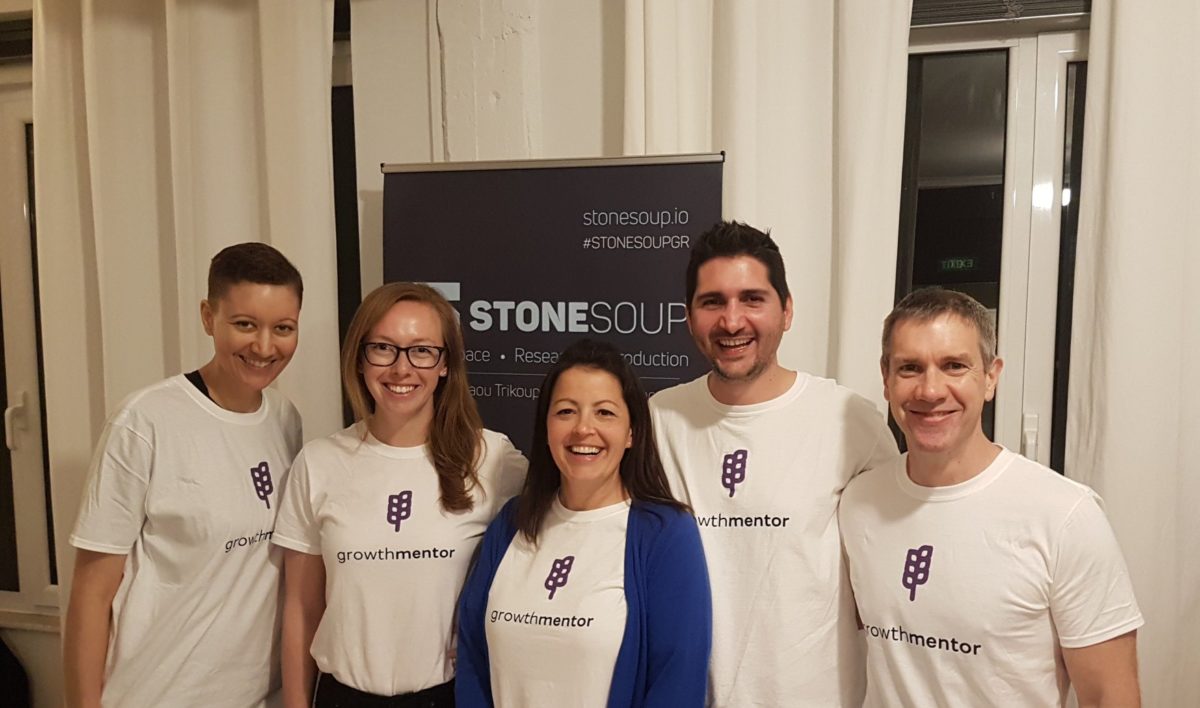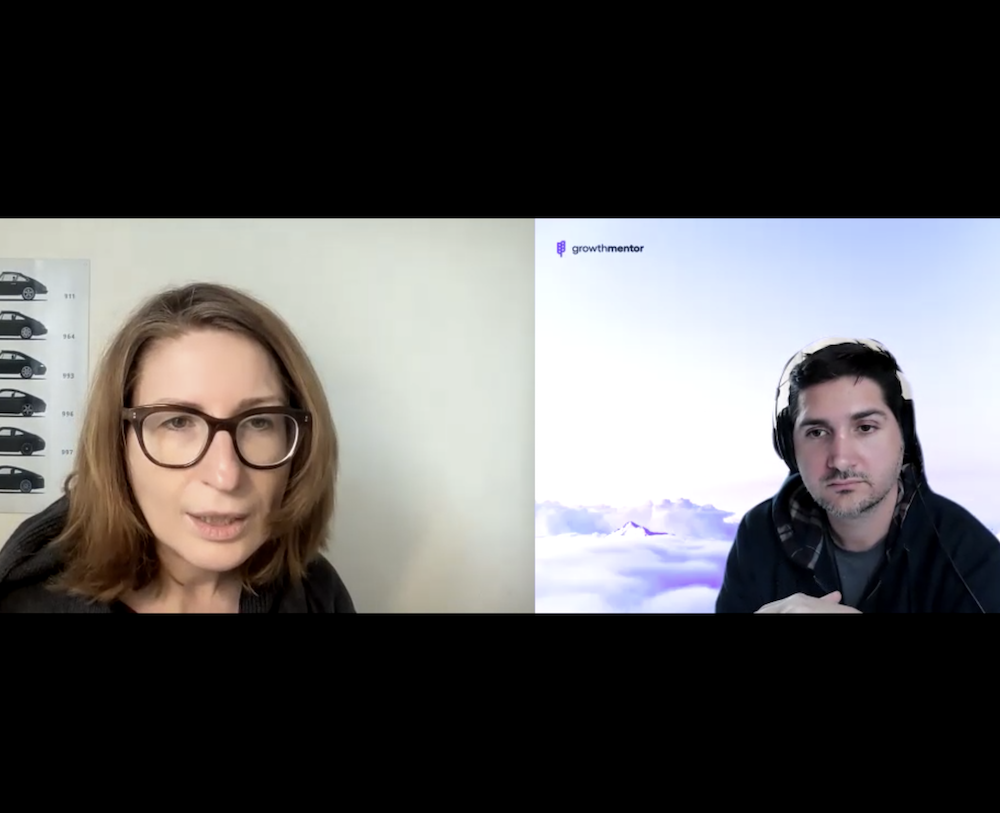A Month of Growth Mentoring – Here's What I learned
When the founder of Growth Mentor, Foti, reached out to me in September about being a mentor on the platform, I thought of myself in past positions and quickly realized how impactful this platform could be.
Why I believe in Growth Mentor
While I was managing the Marketo instance at Payoff, I constantly second guessed my work. Just one minor configuration misstep in the automation for a loan product, and I could be paralyzing a customer’s opportunity to a personal loan to pay off their credit card debt and reach their own financial freedom. As the specialist of a complex system like Marketo, I yearned to have a mentor that understood Marketo to turn to when I needed a second set of eyes on my work.
As I managed growth at GrowthHackers, I played more of a generalist role and went deep in an expertise when necessary. While our community was a great place to learn, I always learned more when I had an opportunity to talk to an expert and let them guide me down a catered path of learning. However, finding the right person to talk to and getting time on their calendar was not always easy or efficient.
Marketing and growth are only becoming more difficult with the increasing pace of change in today’s world. I believe Growth Mentor is something that can bring people together and use our collective brainpower to fuel the next generation of growth experts and companies.
A month of Free Mentoring
After being on the platform as a mentor for a a few months, having my first successful paid sessions, and meeting the founders in Greece, I wanted to do whatever I could to help Growth Mentor grow.
Mentally, I shifted my perspective to making March the month of serving others and giving back in the best way I knew how – talking about growth. I’d use everything I learned in my past roles and the research I’ve done on burnout to help others avoid and manage it. During this time I also had an Ask Me Anything on GrowthHackers scheduled in March that forced me to reflect on some challenging questions.
Throughout the month I had over 50 sessions with people across the world in various roles, companies, and stages of their career and life. I did my best to listen, ask questions, provide recommendations, introduce people to my network, and share my experience.
While I knew March would be a fun month, I never would have predicted the value I received from mentoring others and taking time to think about hard questions.
Now, in classic Growth Gal fashion, I’d like to reflect and share the lessons learned from my month of “giving back”, including how much I received in return.
1. Helping others through imposter syndrome can help manage our own.
A majority of the people I talked to were going through some sort of imposter syndrome, whether they admitted it as such or not. It’s natural for everyone to experience some kind of imposter syndrome, and since talking to so many about it, I’ve taught myself something in the process.
Experiencing imposter syndrome means we’re growing and uncomfortable with how we may perform (or underperform) now and in the future. It feels like we don’t know what we need to know or don’t have what it takes to get the job done. Regardless of how we disguise it, it’s fear.
So much of our anxiety is fear driven and is internal thought patterns that we’ve carried with us since childhood. When we open up and talk to others about our fears, we start the process of unraveling our own engrained thought patterns. For a moment we have someone in the trenches with us and they help us build the steps to get out of our own self-deprecating way.
I’ve learned imposter syndrome is not something we fully get rid of, it’s something to observe and manage to propel us forward. It’s our body’s natural reaction to ensure we adopt an always learning growth mindset.
On my mentoring calls I open up about my own imposter syndrome to help others understand it’s normal, I share how I observe the emotions associated with it, and tips on how to move forward it to achieve goals. Each time I do this, I become more aware of the beast and how it’s now something that sits on the bench next to me instead of sitting on top of me.
2. Mentoring is a great way to maintain social interaction and build patience while working remote.
After the first week of mentoring, I noticed my energy levels increasing. My personality is high on sociability and since I’ve moved to Europe, it’s more challenging to find people to talk to in english. While I don’t expect to get all of my social interactions through mentoring, a couple sessions a day gave me a boost and kept me connected to the industry.
In the first week I also had my first no show. At first I allowed myself to get flustered. Thinking “I’m giving them my time for free, and they didn’t show up?” Then the person responded later that day acknowledging they had messed up the time and were extremely apologetic.
Something flipped in my head after that. I remembered I was offering free sessions this month to help others, not myself. I took a deep breath and responded letting the person know it was okay and that they could reschedule. We ended up having a great session and had some valuable feedback to share with the Growth Mentor team on how to improve the scheduling so that people don’t miss their sessions. There’s always two sides to every story, and this has helped me remember it’s best to give others the benefit of the doubt and let go of the little things.
3. There’s no one size fits all, and that helps us build empathy.
Out of all of the calls I’ve had, no two have been the same. Different roles, challenges, companies, locations, and industries make for a brand new call, every call. This is what I’ve come to love. I get to practice my listening skills, learn about others, and suggest ideas for them to consider.
What resonates well for one person may be extremely irrelevant for another. So, I’ve learned to ask questions and work with people to think of new ways to approach their challenges. This includes doing my best to understand when it’s appropriate to tell a personal story or a tactical how-to.
4. Mentoring leads to great ideas for content.
There were a few themes I noticed throughout my calls. I began testing some new analogies I thought of to help people understand different concepts, and got real-time feedback for how well they resonated with the mentees.
Now, I plan to turn these analogies and concepts into blog posts so that I can help even more people that are struggling with the same challenges. It certainly helped that I have a presentation coming up next week and could practice parts of it in different contexts.
5. Free sessions lead to the right paid sessions.
After doing a free month of sessions, I now have a few individuals that are taking me up on weekly paid calls to help continue our mentorship. While I won’t get rich off of these calls, they make certainly me feel good and I imagine they’ll lead to some opportunities in the future.
Moral of this story? Mentoring others pays off in more ways than one, and Growth Mentor is a great platform to get the ball rolling. Onward!




